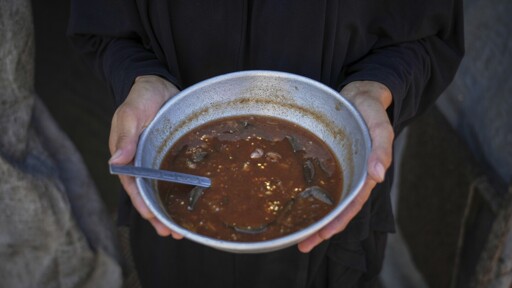DEIR AL-BALAH, Gaza Strip (AP) — A single bowl of eggplant stewed in watery tomato juice must sustain Sally Muzhed’s family of six for the day. She calls it moussaka, but it’s a pale echo of the fragrant, layered meat-and-vegetable dish that once filled Gaza’s kitchens with its aroma.
The war has severed families from the means to farm or fish, and the little food that enters the besieged strip is often looted, hoarded and resold at exorbitant prices. So mothers like Muzhed have been forced into constant improvisation, reimagining Palestinian staples with the meager ingredients they can grab off trucks, from airdropped parcels or purchase at the market.
Israel implemented a total blockade on trucks entering the Gaza Strip in early March and began allowing aid back in May, although humanitarian organizations say the amount remains far from adequate.
Some cooks have gotten inventive, but most say they’re just desperate to break the dull repetition of the same few ingredients, if they can get them at all. Some families say they survive on stale, brittle pita, cans of beans eaten cold for lack of cooking gas, or whatever they can get on the days that they arrive early enough that meals remain available at charity kitchens.



Like the Navajo and Fry-bread, genocide gets intuition into overdrive regarding food